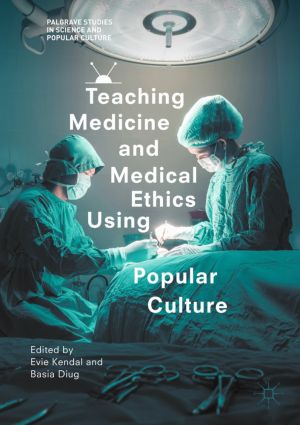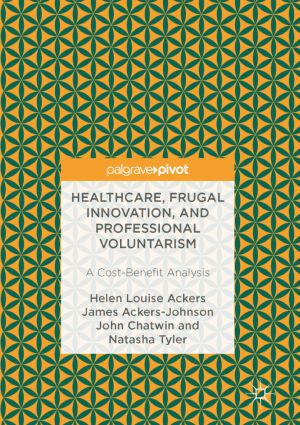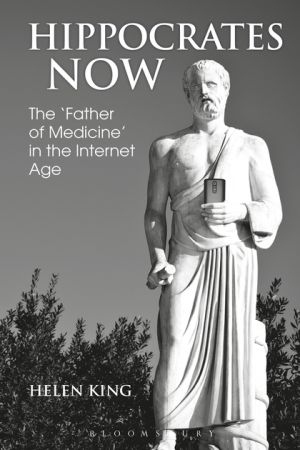
This book explores how the body was investigated in the late nineteenth-century asylum in Britain. As more and more Victorian asylum doctors looked to the bodily fabric to reveal the 'truth' of mental disease, a whole host of techniques and technologies were brought to bear upon the patient's body. These practices encompassed the cli...

This book takes a multidisciplinary approach to provide a holistic understanding of late old age, and situates the aged person within the context of family, caregivers, clinical and other institutions. All through the book, the author discusses preparedness for an aging individual as well as the society in the Indian context. The book highlights in...

This book is the first monograph-length study of the force-feeding of hunger strikers in English, Irish and Northern Irish prisons. It examines ethical debates that arose throughout the twentieth century when governments authorised the force-feeding of imprisoned suffragettes, Irish republicans and convict prisoners. It also explores the fraught ro...

This book demonstrates how popular culture can be successfully incorporated into medical and health science curriculums, capitalising on the opportunity fictional media presents to humanise case studies. Studies show that the vast majority of medical and nursing students watch popular medical television dramas and comedies such as Grey’s Anatomy,...

'This is an exciting, groundbreaking book. With an astonishing array of examples and a brilliant eye for the essential, Øyvind Kvalnes takes the Socratic motto of knowing yourself to our everyday lives in the workplace. Applied philosophy at its best, the book will affect the way you do your work and live your life.'—Professor Esa Saar...

This book surveys drinking in Britain between the Licensing Act of 1869 and the wartime regulations imposed on alcohol production and consumption after 1914. This was a period marked by the expansion of the drink industry and by increasingly restrictive licensing laws. Politics and commerce co-existed with moral and medical concerns about drunkenne...

This open book trains the next generation of scientists representing different disciplines to leverage the data generated during routine patient care. It formulates a more complete lexicon of evidence-based recommendations and support shared, ethical decision making by doctors with their patients.
Diagnostic and therapeutic technologies continue ...

This book explores the social history of the anti-vivisection movement in Britain from its nineteenth-century beginnings until the 1960s. It discusses the ethical principles that inspired the movement and the socio-political background that explains its rise and fall. Opposition to vivisection began when medical practitioners complained it was cont...

It is common for us today to associate the practice of science primarily with the act of seeing—with staring at computer screens, analyzing graphs, and presenting images. We may notice that physicians use stethoscopes to listen for disease, that biologists tune into sound recordings to understand birds, or that engineers have created Geiger telle...

The goal of this book is to develop an approach to clinical health care ethics that is more accessible to, and usable by, health professionals than the now-dominant approaches that focus, for example, on the application of ethical principles. The book elaborates the view that health professionals have the emotional and intellectual resources to ...

This book is the final publication of the COST Action IC1303 "Algorithms, Architectures and Platforms for Enhanced Living Environments (AAPELE)" project.Ambient Assisted Living (AAL) is an area of research based on Information and Communication Technologies (ICT), medical research, and sociological research. AAL is based on the notion tha...

This book is the first comparative study of public, voluntary and private asylums in nineteenth-century Ireland. Examining nine institutions, it explores whether concepts of social class and status and the emergence of a strong middle class informed interactions between gender, religion, identity and insanity. It questions whether medical and lay e...

This book consolidates experiences from across Europe on the design, development, implementation and evolution of inter-organisational information infrastructures for healthcare. It provides insights with practical relevance for those involved or interested in the planning and implementation of such infrastructures and includes 11 empirical cases o...

This book investigates psychiatry in Uganda during the years of decolonisation. It examines the challenges facing a new generation of psychiatrists as they took over responsibility for psychiatry at the end of empire, and explores the ways psychiatric practices were tied to shifting political and development priorities, periods of instability, and ...

This book describes and explains the educational method of Case-Based Clinical Reasoning (CBCR) used successfully in medical schools to prepare students to think like doctors before they enter the clinical arena and become engaged in patient care. Although this approach poses the paradoxical problem of a lack of clinical experience that is so essen...

This book explores the impact that professional volunteers have on the low resource countries they choose to spend time in. Whilst individual volunteering may be of immediate benefit to individual patients, this intervention may have detrimental effects on local health systems; distorting labour markets, accentuating dependencies and creating oppor...

It constitutes a unique source of knowledge and guidance for all healthcare workers who care for patients with sepsis and septic shock in resource-limited settings. More than eighty percent of the worldwide deaths related to sepsis occur in resource-limited settings in low and middle-income countries. Current international sepsis guidelines cannot ...

Consumer networks have revolutionized the way companies understand and reach their customers, making possible intricate measurement and accurate prediction at every step of every transaction. The same revolution is underway in our infrastructure, where new generations of sensor-laden power plants, cars and medical devices will generate vast quantit...

This is the first book-length exploration of the thoughts and experiences expressed by dementia patients in published narratives over the last thirty years. It contrasts third-person caregiver and first-person patient accounts from different languages and a range of media, focusing on the poetical and political questions these narratives raise: wha...

This book looks at the dramatic history of ovariotomy, an operation to remove ovarian tumours first practiced in the early nineteenth century. Bold and daring, surgeons who performed it claimed to be initiating a new era of surgery by opening the abdomen. Ovariotomy soon occupied a complex position within medicine and society, as an operation which...

This book explores the question of who or what 'the public' is within 'public health' in post-war Britain. Drawing on historical research on the place of the public in public health in Britain from the establishment of the National Health Service in 1948, the book presents a new perspective on the relationship between state and ...

This book explores the under-researched history of male mental illness from the mid-twentieth century. It argues that statistics suggesting women have been more vulnerable to depression and anxiety are misleading since they underplay a host of alternative presentations of 'distress' more common in men....

This book investigates what international placements of healthcare employees in low resource settings add to the UK workforce and the efficacy of the its national health system. The authors present empirical data collected from a volunteer deployment project in Uganda focused on reducing maternal and new-born mortality and discuss the learning and ...

The narrative of 20th-century medicine is the conquering of acute infectious diseases and the rise in chronic, degenerative diseases. The history of fungal infections does not fit this picture. This book charts the path of fungal infections from the mid 19th century to the dawn of the 21st century....

This volume offers extensive information on preventive and infection surveillance procedures, routines and policies adapted to the optimal infection control level needed to tackle today's microbes in hospital practice. It especially focuses on preventive measures for serious hospital infections. Each chapter includes a practical section that a...

Coronavirus - there's a new word you might have heard. You might hear people talking about it or you might hear it on the news. This word is the reason that you're not going to school. It is the reason you can't go outside very often or visit your friends. It might be the reason why the grown-up or grown-ups who look after you are at...

This book will challenge widespread assumptions about Hippocrates (and, in the process, about the history of medicine in ancient Greece and beyond) and will also explore the creation of modern myths about the ancient world. Why do we continue to use Hippocrates, and how are new myths constructed around his name? How do news stories and the internet...

This open book presents case studies of twelve organisations which the public have come to view as institutions. From the BBC to Doctors Without Borders, from the Amsterdam Concertgebouw Orchestra to CERN, this volume examines how some organisations rise to prominence and remain in high public esteem through changing and challenging times. It build...

This open book explores the history of asylums and their civilian patients during the First World War, focusing on the effects of wartime austerity and deprivation on the provision of care. While a substantial body of literature on ‘shell shock’ exists, this study uncovers the mental wellbeing of civilians during the war. It provides the first ...

This open book provides an accessible introduction to the mechanics of international development and global health text for policy-makers and students across a wide range of disciplines. Antimicrobial resistance is a major threat to the well-being of patients and health systems the world over. In fragile health systems so challenged, on a day-today...

Since the revival of maggot therapy in Western wound care approximately thirty years ago, there has been no comprehensive synthesis of what is known about its clinical practice, supply chain management, and social dimensions. This edited volume fills the information vacuum and, importantly, makes the current state of knowledge freely accessible. It...
